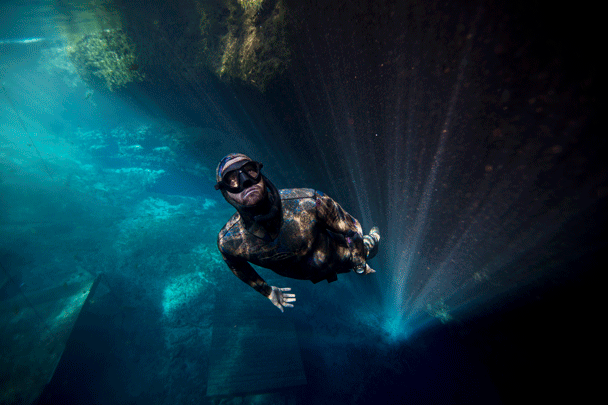EXPLORE FREEDIVING
“Life is not measured by the number of breaths we take, but by the moments that take our breath away.”
Maya Angelou
Freediving is about inward power, discipline and control. If you’ve always wanted to enter the underwater world quietly, on your own terms, staying as long as your breath allows, then freediving is for you. Take your first step towards discovering why freediving is becoming a popular way to explore beneath the waves
The PADI Basic Freediver course is a subset of the PADI Freediver course. It’s a great first step for developing solid freediving skills.
You learn basic freediving principles and focus on practicing breathhold techniques in a pool or confined water site.
Freediving is about inward power, discipline and control. If you’ve always wanted to enter the underwater world quietly, on your own terms, staying as long as your breath allows, then freediving is for you.
Taking the PADI Freediver course is your first step toward discovering why freediving is becoming a popular way to explore beneath the waves.
Achieving a new freediving time or reaching a new depth is an incredible feeling. It satisfies that very personal desire to do your best and be proud of what you can accomplish.
The PADI Advanced Freediver course is designed to fulfill that personal need to refine and improve your freediving skills, allowing you to progress slowly while learning how your body performs during apnea.
If you’re an advanced freediver who wants to learn how to fine-tune your lifestyle and training so that you can approach elite freediving levels, then the PADI Master Freediver course is for you.
Through focused sessions, you’ll bring your static apnea, dynamic apnea, free immersion and constant weight skills to the next level.
If you’re an avid freediver, you likely spend a lot of time thinking about freediving, talking about freediving and sharing the details of your latest freediving adventures.
Becoming a PADI Freediver Instructor lets you take your passion for freediving to the next level and allows you to do what you enjoy as a profession.






